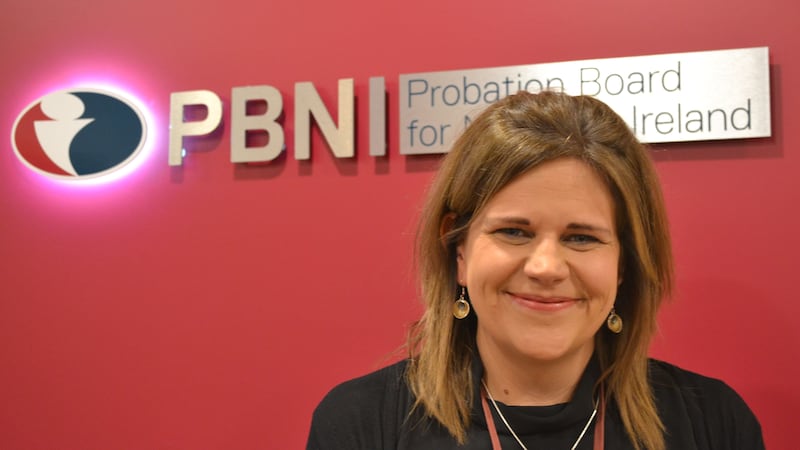A justice initiative targeting people who commit crimes related to drug or alcohol abuse is helping to transform and save lives, a probation chief has said.
Staff from the Probation Board for Northern Ireland have been briefing justice staff in England about the operation of the substance misuse court, which has been running at Laganside Magistrates’ Court in Belfast.
Through the programme an offender signs up to a strict treatment plan aimed at tackling their substance misuse, instead of going immediately to prison.

As part of the plan, the person who has offended will have regular contact with staff from the Probation Board as well as other health professionals. They will also have regular and random drug and alcohol testing.
The person’s progress and any risks they pose to the public are closely monitored and reported back to the court.
They will appear at least once a month before a judge.
If the person who has offended successfully completes the programme they will be sentenced by the judge, who will take into account their participation in the programme.
Gillian Montgomery, director of operations at the Probation Board, said: “The estimated cost of substance misuse in NI is £900 million and there has been a 203% increase in drug misuse deaths in the last 10 years.
“As part of the strategy to try and tackle this problem, probation in partnership with our colleagues in the Northern Ireland Courts and Tribunal Service, the Judiciary and Inspire Wellbeing have been delivering a project which provides holistic support including interventions from probation officers, psychologists, and counsellors to try and help people turn their lives around and move away from the addiction which is causing their offending.”
Ms Montgomery said 74% of those who took part reduced their likelihood of offending score by the end of the programme and 60% showed a reduction in drugs-related problem behaviour, with 37% achieving full abstinence.
She added: “This programme is one way of helping to tackle substance related offending.”
Presiding district judge Steven Keown said: “The substance misuse court is a unique project which offers people who want to change their lives an opportunity to really tackle their addiction and the root cause of their offending.
“At the beginning of the process people may be extremely chaotic and need significant support.
“The communication with probation staff is critical in helping me to assess if individuals are likely to make progress through this project and whether they will benefit from the support and opportunities the substance misuse court provides.”
Aideen McLaughlin, assistant director at the Probation Board, said: “Those who have participated in this project must undertake regular drug testing, psychological assessment, treatment and attend court.
“It is about providing support but also holding people to account.
“A number of service users have said that they believe they would have died had it not been for the treatment provided by this project. It has been life-changing for those people.”


